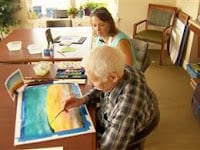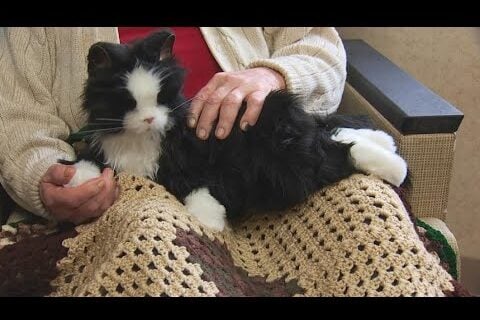
Thoughtful Dementia Care – Understanding the Dementia Experience
BOOK OF THE WEEK: Thoughtful Dementia Care is today’s best book on understanding the dementia experience. An easy-to-read, sensitive portrayal of managing the world of dementia.

BOOK OF THE WEEK: Thoughtful Dementia Care is today’s best book on understanding the dementia experience. An easy-to-read, sensitive portrayal of managing the world of dementia.

DIET: Years of good research suggests caffeine lowers dementia risk. New research uncovers a subtle twist – AFTER dementia kicks in, caffeine may exert negative effects. Get the facts.

UCLA CAREGIVER TRAINING VIDEO: Agitation and anxiety create resistance in people with Alzheimer’s and frustration for their caregivers. Learn techniques to solve and resolve these difficult moments.

MEDICATION VIDEO + ARTICLE: From allergies to moods, most of us get relief from drugs known as “anticholinergics”. Some raise dementia risk, some don’t. Do we always need them? A study of 300,000 people offers answers to help you and your doctor better weigh the risks and benefits.

In a new Alzheimer’s study, Rexulti (brexpiprazole) significantly reduced agitation. Learn the kinds of agitation it reduced and by how much.

TEEPA SNOW VIDEO: People with dementia can say, do and act in the most frustrating ways. Learn why it happens the way it does, how to take it, and what to do about it.

“People with dementia living in nursing homes and in the community were prescribed less and we did not detect negative health impacts for these groups.”

EMOTIONAL STATES of individuals with Alzheimer’s are profoundly influenced by caregivers. Learn how.

DIET NEWS – ARTICLE & VIDEO: These studies show dark chocolate improves memory & mood, boosts immunity and reduces stress as well as inflammation.

DEMENTIA WITH LEWY BODIES VIDEO: Hallucinations in dementia often pose bigger challenges than memory and cognitive problems. Watch these smart caregiver strategies from the University

People with dementia are enjoying yoga and dance classes at the Alzheimer’s Association. See why caregivers find the classes “EXTREMELY helpful.”

Swiss researchers find that people with certain personality traits are protected against Alzheimer’s disease, including those who are less agreeable, had natural curiosity, and were nonconformists. Find out why.

Learn about ‘personalized music for dementia’ and its powerful effect on Alzheimer’s. See the Director of the hit film, ‘Alive Inside’, on the dementia-impact of music.

People with dementia are enjoying yoga and dance classes at the Alzheimer’s Association. See why caregivers find the classes “EXTREMELY helpful.”

Swiss researchers find that people with certain personality traits are protected against Alzheimer’s disease, including those who are less agreeable, had natural curiosity, and were nonconformists. Find out why.

Learn about ‘personalized music for dementia’ and its powerful effect on Alzheimer’s. See the Director of the hit film, ‘Alive Inside’, on the dementia-impact of music.

The brush strokes are precise, the colors vibrant. See a Colorado art program help patients rise above dementia, while the paintings raise money for The Alzheimer’s Association.
No spam, only news and updates.


